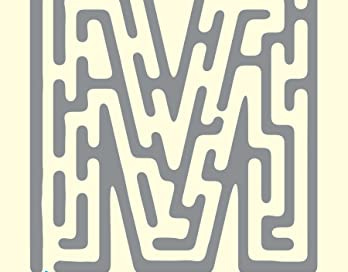I'm ba-a-a-ack
She said, 'Where you been?' I said, 'No place special.' She said, 'You look different.' I said, 'Well, I guess....'
Hi, I’m Seth Rogovoy, and you are subscribed to Everything Is Broken, my free Substack newsletter featuring original writing on all variety of topics—mostly but not limited to culture and the arts.
Everything Is Broken is wholly separate from The Rogovoy Report, my other Substack newsletter, which comes out twice a week: once as a curated digest of news and features from around the web (with a very Berkshire/Hudson Valley point of view), and once weekly as a cultural preview (again, focusing on the greater Berkshire/Hudson Valley region). If you would like to check out The Rogovoy Report or subscribe, please click here.
You can subscribe independently to The Rogovoy Report and/or Everything Is Broken. While there are paid options for each newsletter, there is no expectation on my part that you will pay for one or both—that is up to you. Of course your voluntary paid subscriptions are an expression of support for what I am doing here—both moral support and material support. But let’s just leave it at that for now.
Where have I been?
It has been quite a while since I sent out an Everything Is Broken newsletter. That is because I have been deeply engaged in a long-term book project (more about which I will talk later). I am still working on the book, but I have finally entered the phase in which I have some breathing room—enough, I hope, to allow for greater consistency and regularity in publishing this newsletter.
What will I be writing about here?
I hope to use this platform to share with you my thoughts on books, music, movies, TV programs, performances, and other original ideas that come my way, ranging from things that annoy me to things for which I am grateful. (It’s probably more of the former than the latter; ranting comes easier than … what is the opposite of ranting?)
Read any good books lately?
As I mentioned above, I have been writing a book for … I’m not sure how to count the time, but it has been a long time. (Writing involves more than writing—more on that some other time.) Many of the books I have been reading fall into the category of research. Also, while burying my brain deep inside the world of my book’s topic, I have been unable to do much serious reading outside of that territory.
I did, however, stumble upon the joys of reading police procedurals, crime fiction, mysteries, noir, Nordic noir … whatever you want to call that genre. I NEVER read genre fiction before, but when I realized I needed to read something that was the equivalent of what I liked to watch, something to get me out of my own head and entertain me, I turned to murder mysteries and … I loved them. More on that later.
Still, I am quite happy, now that I am done with the intense book research and writing, to pick up where I left off, and to go back to reading literary fiction and serious (or not-so-serious) nonfiction. I’ve got several books going right now (back to my old bad habits of reading more than one book at a time).
Yesterday I finished reading Novelist as a Vocation by one of my all-time favorite writers, Haruki Murakami, best known for novels including The Wind-Up Bird Chronicle, Kafka on the Shore, and 1Q84.
In addition to writing fiction, Murakami also writes essays, and this book is a collection of essays on, well, writing novels. Murakami has a very plainspoken narrative style whether he is writing fiction or nonfiction, so it’s not a surprise to learn that he thinks highly of the work of Raymond Carver, even though there are some great stylistic differences between the two writers. But in Novelist as a Vocation, Murakami delivers exactly what he promises: insights into the process of fiction writing. Murakami makes no bones about writing from and only from his personal experience, which includes everything from how he structures his days to where he gets his ideas from, how he deals with translation and why he eschews almost all public appearances and press opportunities.
The audience for this book — and indeed, Murakami writes a lot about the intended audience for his work (or rather, if there even is one) — is probably limited to two kinds of people: fans of Haruki Murakami and anyone interested in the nuts-and-bolts of fiction writing, from the highly idiosyncratic point of view of this perennially touted prospect for the Nobel Prize for Literature. (Hey Sweden - what are you waiting for?)
As a member of both those audiences, I ate this book up like a feast. I cannot say if you will do the same. But if you do give it a read, I would love to hear your thoughts. Maybe we could even schedule one of those Substack Chat things — if I ever learn how to do one of those.
That’s it for today. I am still easing back into this format. Thanks for reading this far. And if you didn’t care for it, please hang in there and give Everything Is Broken a chance to evolve into something you will probably like.
P.S. How ‘bout those Mets?




